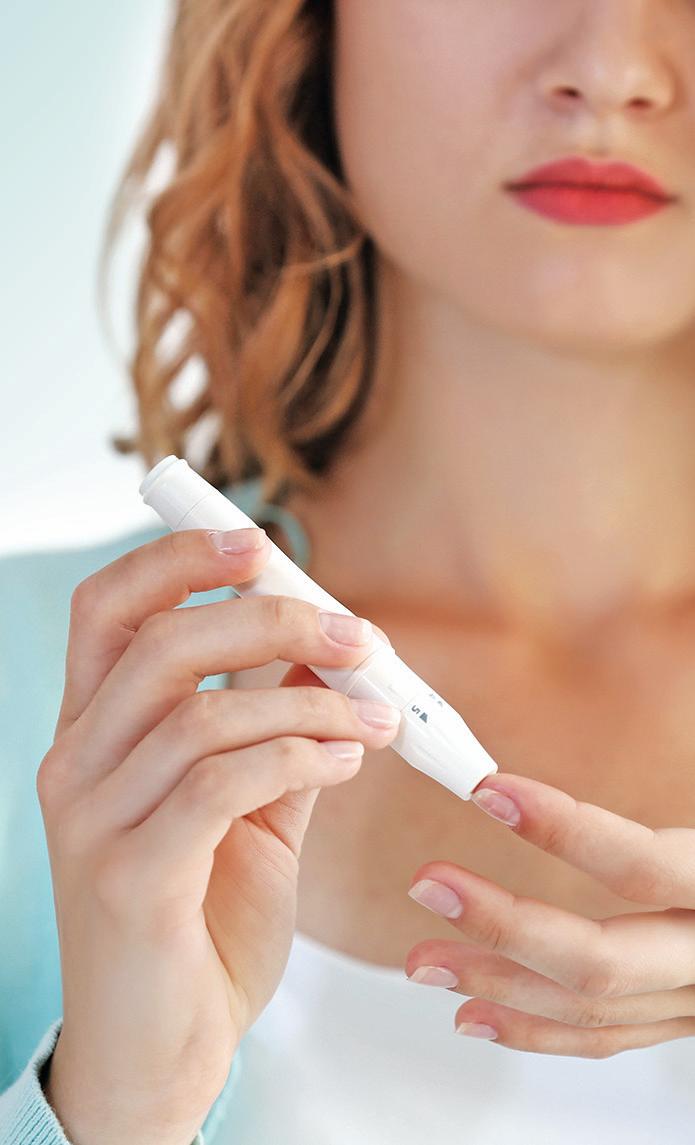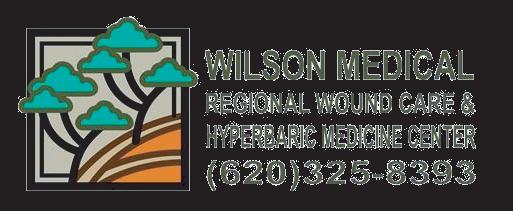
2 minute read
Diabetes Awareness
from Healthy Living 2021
Wilson Medical Regional
By Wilson Medical Center staff
Wilson Medical Regional Wound Care & Hyperbaric Medicine Center in Neodesha is raising awareness of diabetes-related wounds as part of Healogics’ eighth-annual Diabetes Awareness Campaign.
Throughout November, they will educate the local community about the importance of awareness, early intervention and specialized care for diabetes-related chronic wounds, like diabetic foot ulcers. Local team members will also visit healthcare providers in surrounding areas to provide important information to help at-risk patients living with diabetes. These resources include the 2021 Diabetes Awareness Infographic and posters designed to encourage patients to take off their socks and shoes for foot exams at every appointment.
Diabetes-related wounds are a leading cause of limb loss, accounting for 65,000 amputations annually. Early detection and specialized care from a Wound Care Cen-
There are 34.2 million people in the United States currently living with diabetes.
ter can reduce healing times and significantly reduce the risk of amputation.
Risk factors for diabetes include age, diet, activity level, obesity and heredity. Factors that may increase the risks of developing a chronic wound, such as a diabetic foot ulcer, include high blood sugar levels, poor circulation, immune system issues and nerve damage.
The Wound Care Center recommends the following to help prevent diabetic foot ulcers: • Stop smoking immediately • Comprehensive foot examinations each time you visit your healthcare provider (at least four times a year) • Examine your feet every day or have a family member inspect them • Take good care of your feet and clean your toenails • See your healthcare provider to care for corns and calluses • Choose supportive, proper footwear (shoes and socks)
Diabetic foot ulcers have a very high recurrence rate: As many as 40 percent of people with a healed diabetic foot ulcer will develop a new ulcer within a year. Diabetic foot ulcers can be challenging to heal, so it’s important to seek specialized care from a Wound Care Center as soon as an ulcer develops. Wilson Medical Wound Care Center provides advanced therapies to aid in infection prevention, new tissue growth and successful wound closure.
For more information about diabetic foot ulcers or how we may be able to help you with other hard to heal wounds, contact the Wilson Medical Regional Wound Care & Hyperbaric Medicine Center at (620) 325-8393, 2600 Ottawa Road, Neodesha, KS.
@theproteinplace_iola
The Protein Place
Nutrition & Wellness 620-363-4832
110 S. Jefferson Ave. • Iola, KS


If your loved one has diabetes, you can help by: Making it a team effort Help to ease stress Learning how diabetes works
Approximately 25 percent of people living with diabetes will develop a foot ulcer. It’s important to seek specializedwound care as soon as an ulcer develops. We can provide guidance and advanced therapies so call us for more information.







